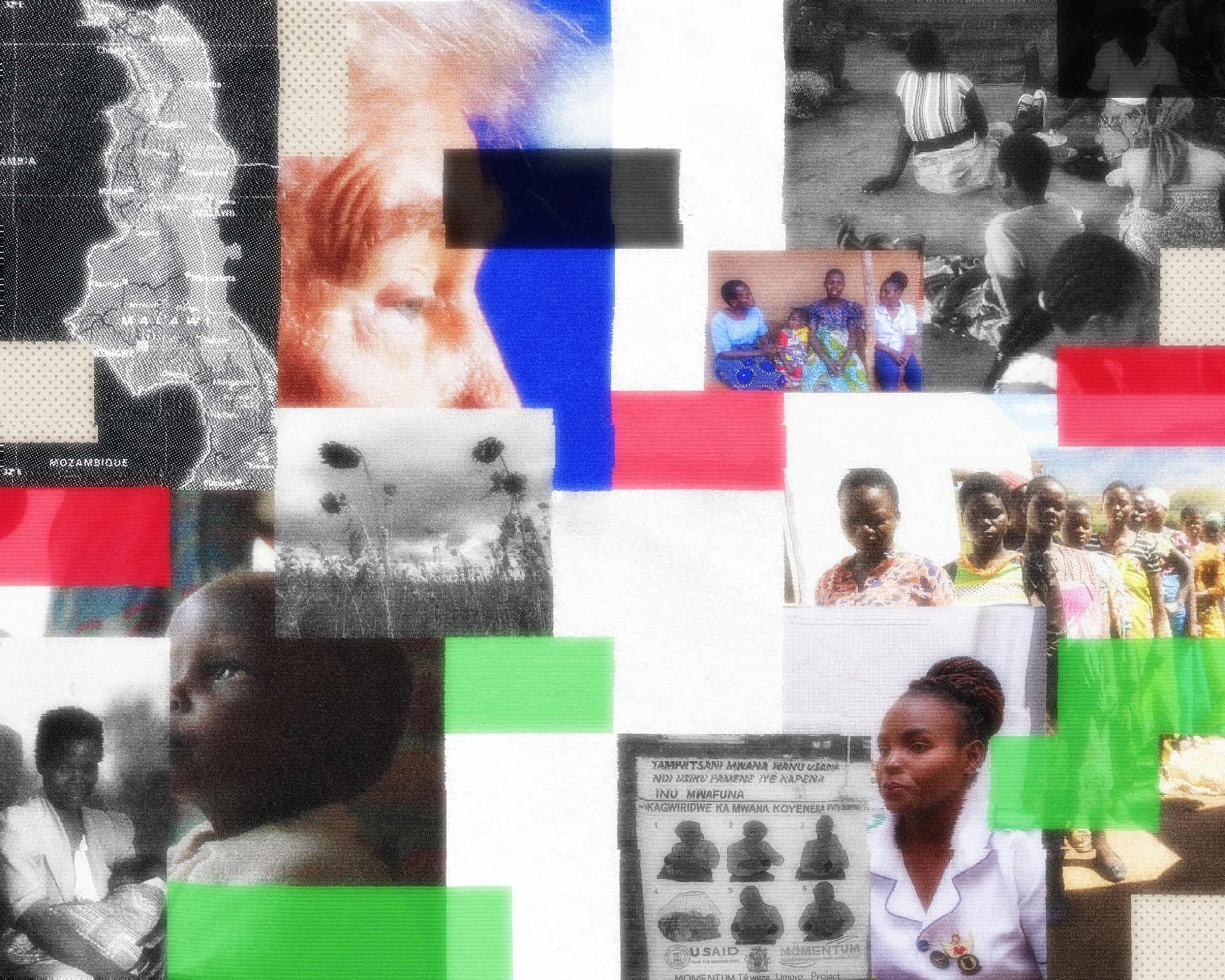Lifestyle
Aid Cuts Endanger Maternal Health in Malawi’s Rural Communities

A recent reduction in foreign aid has jeopardized maternal healthcare in Malawi, one of the poorest countries in Africa. The cuts have left many women, including 22-year-old Joanna Banda, struggling to access essential medical services during pregnancy. Banda, who is eight months pregnant, has attended only three of the five antenatal appointments recommended for her condition. She faces the daunting task of saving 3,000 kwacha (approximately £1.28) for transportation to the nearest health facility, which lies six miles away over rough terrain.
The situation has worsened since January, when the United States abruptly terminated support for a critical rural healthcare outreach program called Momentum Tikweze Umoyo. This initiative, with a budget of $28 million, aimed to reduce maternal and infant mortality rates in five districts across Malawi. It was initially projected to last until 2027, but has become a casualty of significant aid cuts initiated shortly after Donald Trump assumed office.
Congress approved $9 billion in cuts to aid and public broadcasting in July 2023. Recently, President Trump announced plans to revoke an additional $4.9 billion in previously approved aid. As a result, the healthcare landscape in rural areas like Banda’s village, Kafulatira, has deteriorated sharply.
Kafulatira is a small community with nearly 1,000 residents, located in Salima District, east of Lilongwe, Malawi’s capital. Lacking piped water and electricity, the village has seen its only bridge washed away, further isolating pregnant women. Previously, a mobile clinic visited regularly, offering vital services such as cervical cancer screenings, HIV testing, vaccinations for children, and antenatal care. Now, community members like Mulirani Gerard express their frustration over the loss of these services.
“The outreach clinics were helping a lot,” Gerard recalls. “Since last year, we had been waiting for the team to come.” Other women in the community, including Juliette Kannda, have been left with fewer options. Kannda, who previously received bi-monthly contraceptive injections, now finds herself needing to save 10,000 kwacha for a 25-mile round trip to another health center. “I am looking forward to getting the implant,” she states, highlighting the challenges many face to access essential reproductive health services.
Malawi’s economic situation exacerbates the crisis. According to the World Bank, the country’s income per person was just $508 in 2024, and it is heavily dependent on foreign aid. In fact, aid from the US accounted for 2% of Malawi’s GDP in 2024, significantly higher than the 0.5% average across sub-Saharan Africa. The International Food Policy Research Institute reported that the US provided a quarter of all aid sent to Malawi in 2023, underscoring the vital role of international support in the country’s healthcare system.
The cuts have come at a time when Malawi’s economy is already struggling with inflation exceeding 20% for three consecutive years. Shortages of fuel, fertilizer, and medicine have compounded the issues faced by citizens. An IFPRI study indicated that US aid is projected to fall by 59% this year, which could reduce Malawi’s GDP by an estimated 1%.
Healthcare experts warn that the aid reductions will have dire consequences. Hester Nyasulu, the Malawi director for Amref Health Africa, noted that while providing healthcare is fundamentally the government’s responsibility, it lacks the necessary resources. “The termination of the USAID funds will definitely lead to more deaths of pregnant and lactating women and also newborns,” he stated.
Data from Nyasulu indicates that maternal mortality rates had begun to decline in three of the five districts served by the Momentum Tikweze Umoyo project. The outreach clinics had increased the number of vaccinations, improved malaria treatment, and provided more women with family planning services. In Salima District, outreach clinics were held at 87 sites, providing care to multiple communities each day.
Healthcare professionals at the Makioni health center, approximately 34 miles from the district capital, are already witnessing the negative effects of the cuts. Staff there report a drop in antenatal appointments and cancer screenings, while some women resort to unsafe abortions due to their inability to access services. “It’s increased the workload in the facilities, hence the poor quality of services,” said Yohane Billiat, the district family-planning coordinator.
In urban areas like Lilongwe, the quality of healthcare is also declining. Previously funded training for health workers has lapsed, resulting in fewer tuberculosis cases being diagnosed and treated. “If people are not being diagnosed early enough, it will be difficult for them to get cured,” warned Thoms Chigeda, the district TB coordinator.
Despite the cuts, a US State Department spokesperson reiterated the country’s commitment to providing life-saving assistance in Malawi, including approximately $160 million to combat critical health risks such as HIV, tuberculosis, and malaria. “America continues to be the most generous nation in the world,” they stated, emphasizing that it is not feasible for American taxpayers to bear the entire burden of global healthcare needs.
As maternal healthcare continues to decline, many in Malawi fear that the repercussions of these aid cuts will extend beyond their borders. Maclean Nkhoma, the immunization coordinator in Lilongwe, highlighted the potential global implications, stating, “If Africa is protected, that means the whole world is protected.” The ongoing healthcare crisis in Malawi underscores the urgent need for international cooperation and support to safeguard the health and lives of its most vulnerable populations.
-

 Technology5 months ago
Technology5 months agoDiscover the Top 10 Calorie Counting Apps of 2025
-

 Health2 months ago
Health2 months agoBella Hadid Shares Health Update After Treatment for Lyme Disease
-

 Health3 months ago
Health3 months agoErin Bates Shares Recovery Update Following Sepsis Complications
-

 Technology4 months ago
Technology4 months agoDiscover How to Reverse Image Search Using ChatGPT Effortlessly
-

 Technology1 month ago
Technology1 month agoDiscover 2025’s Top GPUs for Exceptional 4K Gaming Performance
-

 Technology2 months ago
Technology2 months agoElectric Moto Influencer Surronster Arrested in Tijuana
-

 Technology5 months ago
Technology5 months agoMeta Initiates $60B AI Data Center Expansion, Starting in Ohio
-

 Technology5 months ago
Technology5 months agoRecovering a Suspended TikTok Account: A Step-by-Step Guide
-

 Health4 months ago
Health4 months agoTested: Rab Firewall Mountain Jacket Survives Harsh Conditions
-

 Lifestyle5 months ago
Lifestyle5 months agoBelton Family Reunites After Daughter Survives Hill Country Floods
-

 Technology4 months ago
Technology4 months agoHarmonic Launches AI Chatbot App to Transform Mathematical Reasoning
-

 Technology3 months ago
Technology3 months agoUncovering the Top Five Most Challenging Motorcycles to Ride




















